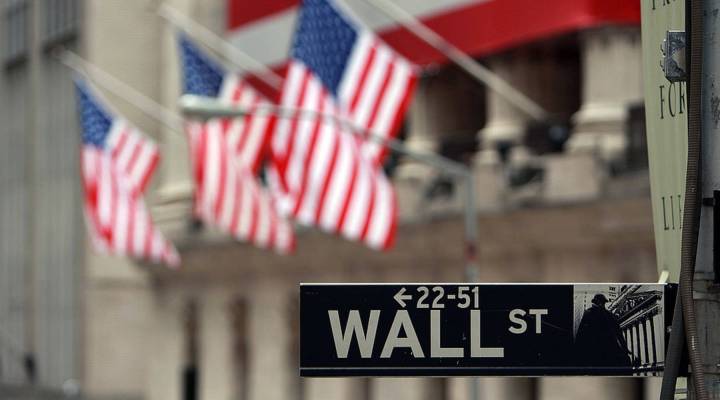
Why boredom is a bank ethicist’s best friend

Think about the types of people you expect to see at a bank: the teller, a financial analyst and probably even a loan officer. But what about a bank ethicist? And yes, ethicist, as in someone who advises on the ethics and culture of an institution — in this case, banks. Professor David Miller directs the Faith and Work Initiative at Princeton University is also a bank ethicist. He spoke to Marketplace host Kai Ryssdal about his work. An edited transcript of their conversation is below.
Kai Ryssdal: So I’ll tell you what, we saw that story about you in the Wall Street Journal, and we said, “We have to talk to this guy and find out what a bank ehticist does.” What do you do when you’re at Citigroup?
David Miller: I’m not as interested in questions of audit and compliance and legal and regulatory restrictions. So what I am interested in, and what I focus on, are a few things: One is that sometimes there might be an event-specific dilemma, or a certain circumstance arises with a particular customer or a client. Other times, it’s stepping back and evaluating more systemically or culturally. Are we creating an environment where people will flourish and be inclined to do the right thing? And we can take as an example — it’s public domain information — Wells Fargo appears not to have done a good job at that. That they created a culture, despite all their wonderful values statements, and I’m sure lots of mostly excellent, fine individuals, the culture certainly seemed to bend people towards misbehavior and conduct.
Ryssdal: Not to keep banging on Wells Fargo, but let’s say the CEO of Wells Fargo calls you up and says, “David, we need some help, man.” What’s your methodology? How do you do what you do?
Miller: At the risk of sounding a bit cheeky, what I first seek to do is, are they serious? There’s a lot of people who have the platitudes and the right sayings. And maybe they mean it, maybe they don’t or is it just lip service? So the first thing I try to do is find out are they serious. And if so, to expect carte blanche to ask any question I want to whomever I want.
Ryssdal: We should say here, you know whereof you speak. You spent some time in finance when you were young.
Miller: Yes, so I started my career with IBM for eight years in the States and then spent eight years in London. So my British friends would tease and say I’m a poacher turned gamekeeper. So I know, as you say, what the pressure is, the realities of being in senior positions, and other middle and junior positions as well, the intensity of competition, the excitement, the allure of much of it, but also what I call the ethical gray zone. Sometimes the context that we’re in, the water in which we swim, might be hot or cold, it might motivate us towards more ethical behavior or motivate us towards less ethical behavior. That’s where the interesting action is.
Ryssdal: Wall Street is all about results and measurement and quantifying how well you’re doing literally on a balance sheet. I state that because it seems to me the problem for you is measuring success, because success for you is the absence of scandal, right?
Miller: The measurement of success is boredom, when your company is not in the pages for misconduct. And frankly, banks should measure things, they should seek to have appropriate profits. They’re performing a public service. They need to be healthy and vibrant. But these things can be measured. By these things, I mean questions of ethics and culture. And there’s a variety of very interesting research going on in the academic community that’s looking at it. And I think organisations now are beginning to say, “Help us think this through. How can we draw on some of the rich traditions of the humanities, let’s say, and how can we apply that to our people and our organizations?’ Because after all, Citibank and every other bank is comprised of people who have human emotions and behaviors and realities.
There’s a lot happening in the world. Through it all, Marketplace is here for you.
You rely on Marketplace to break down the world’s events and tell you how it affects you in a fact-based, approachable way. We rely on your financial support to keep making that possible.
Your donation today powers the independent journalism that you rely on. For just $5/month, you can help sustain Marketplace so we can keep reporting on the things that matter to you.


















